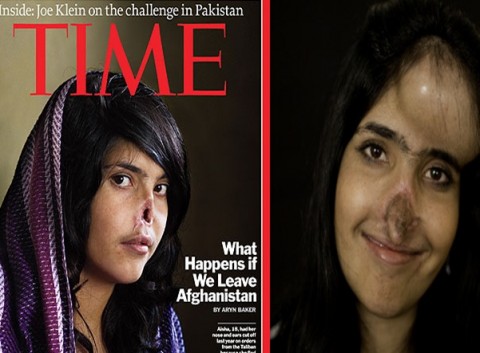Between the Bomb and the Burqa Her voice was thick with passion as she argued for ending violence against fellow Afghan women, but the men didn't listen. Instead they hurled insults at her; they called her a prostitute and a traitor to her religion. The stubborn men's insults were abusive and frustrating, but it had been worse for other women in her position. They were threatened and hunted down. Some of them were killed. Like many recent reports in the media, this story conjures up images of a brave Afghan villager struggling against the tyrannical rule of a Taliban court or insurgent militia, but that's not case: the woman in this story is an unnamed member of the Afghan Parliament supported by the United States. The verbal abuse is recounted by another female Afghan official in a recent Human Rights Watch (HRW) report. The men who called her a prostitute were her colleagues and fellow legislators, the supposed enemies of the religious fanatics fighting for control of Afghanistan. Such accounts shed doubts on the narrative of female liberation following the initial toppling of the Taliban, as the reinvigorated debate over the occupation has renewed the media's interest in the abuses suffered by Afghan women at the hands of America's enemies. Human rights advocates may be pleased, but media critics say the plight of Afghan woman is being used to rally support for the war, and as a recent military leak reveals, the government secretly considered such a media strategy as recently as this spring. Time magazine became the poster child for this trend last week with a cover story featuring the disfigured face of a young Afghan girl named Aisha with the ominous headline: “What Happens if We Leave Afghanistan.” “They are the people that did this to me,” Aisha told the Time reporter as she touched her damaged face, disfigured as part of Taliban punishment for running away from her abusive in-laws. “How can we reconcile with them?” Aisha's heartbreaking plea reveals the harsh reality of living in a war-torn and ultra-religious society. She puts a face on the Afghan dilemma, but critics contend that the Time article on Aisha oversimplifies a complicated issue. “Feminists have long argued that invoking the condition of women to justify occupation is a cynical ploy and the Time cover already stands accused of it,” wrote Priyamvada Gopal, an English professor at Cambridge University, in The Guardian UK. “Misogynist violence is unacceptable, but we must also be concerned by the continued insistence that the complexities of war, occupation and reality itself can be reduced to bedtime stories.” A careful editorial by Time editor Rick Stengel insists that the magazine is not “either in support of the US war effort or in opposition to it,” but its intention is also an attempt to counterbalance the recent WikiLeaks release of more than 90,000 documents detailing the military actions in Afghanistan. According to Stengel, the leaked documents cannot provide “emotional truth and insight into the way life is lived in that difficult land,” but a different WikiLeaks release does provide some insight on using Afghan women to promote war. The Red Cell CIA Leak An internal Central Intelligence Agency (CIA) document released by WikiLeaks in March reveals a secret plan to use the plight of Afghan women and refugees in developing media strategies to “leverage French (and other European) guilt” during an especially bloody summer of military escalation. The confidential document was prepared by the Red Cell, a secretive group that consults the US intelligence community. In response to the news that Dutch forces would soon withdraw from Afghanistan, the Red Cell outlined a plan to use Afghan women and refugees in developing media strategies to ensure that more NATO allies would not succumb to public pressure and follow suit. The memo claimed that a “not our problem” sentiment toward the Afghan conflict allowed European leaders to ignore voter's vast disapproval of the occupation, but “forecasts of a bloody summer” could provoke a public backlash. The forecast was correct: June and July were the deadliest months for NATO and US forces to date. The record number of body bags coupled with the firing of former US Gen. Stanley McChrystal and the bloody revelations provided by the massive WikiLeaks release has pushed international support for the war to a new low. Bloomberg reported last week that, in the wake of the WikiLeaks release, approximately 70 percent of Germans want their troops to leave “as soon as possible.” Germany has the third largest military presence in Afghanistan. READ MORE AT LINK: http://www.truth-out.org/between-bomb-and-burqa62110 added by: pinkpanther
Posted in Celebrities, Hot Stuff
Tagged afghan, america, bennyhollywood, cambridge, current, government, media, mma, occupation, People, spring, taliban, woman



























